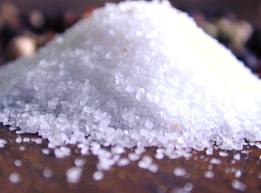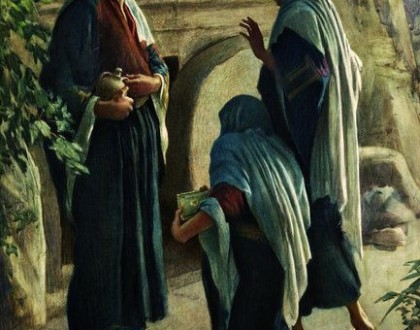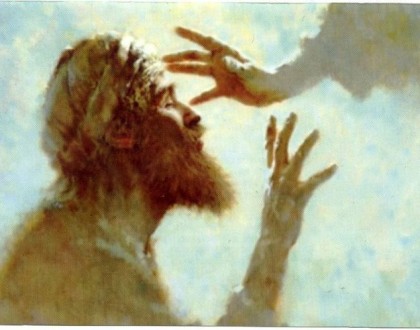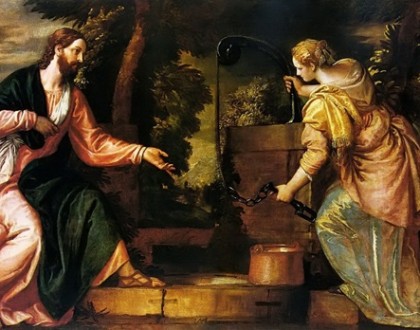Fifth Sunday in Ordinary Time Year C – Salt of the Earth

Salt of the earth, light of the world.
I heard a wise man once say this…….”You want to be happy? Stop worrying about being happy. And get along the task of being fulfilled.”Or in the words of Saint Francis… (Paraphrased)… “You want to be happy? Make others happy, you want to find peace? Bring peace to others, you want to find joy? Bring joy to others, you want compassion? Bring compassion to others.”
Don`t wait for it to come to you, give it away and it will come back to you 30, 60, 100 fold. Serve the community, study, do the work of the Church……and happiness will take care of itself. Happiness is a fruit, a by-product of fulfillment. Get going, act, move. (By the way this could save you 10,000 dollars in therapy! You owe me!)
Holy What?
We can apply this very well to the spiritual life. You want to be holy? Stop fussing so much about your holiness….and get going with the task of discipleship. Stop fussing about your interiority and get going with the work of the Gospel, the corporal works of mercy, announcing the good news, taking care of the poor, do what Christ asks you to do and you become holy behind your own back, or “unknownst to yourself” as they say in Ireland. Holiness tends to take care of itself. In this week’s Gospel Jesus is talking about his followers…”You are the salt of the earth, you are the light of the world”. Salt, Light and a City on a hill. What do we notice? All of those things are for the sake of something outside of them.
Salt ? What does salt do ?
You don`t serve salt as a side course. Salt is really never eaten for its own sake. Salt is rather put into food like meat, especially in Jesus’ time, to preserve and spice it up. To make it taste better. What’s the point of the Church? The point of the Church is not to fuss about itself; the point of the Church is to spice up the world. To preserve what’s good and right and true in the world. But it exists for the sake of what’s outside of it. It’s what love is, we only really find ourselves in another, be it in God or a loved one.
What else can salt be used for?
Salt melts ice, makes things flow that are frozen. This is a melting influence around us. Not for ourselves but for this icy world that needs to flow again.
What else does salt do? In the ancient world, when they would conquer a city, after they knocked the city down, they would then salt the ground, the earth, to make sure nothing would ever grow there again. Salt has a destructive power; it’s meant to destroy certain things. Are we meant to destroy certain things in the world? Yes! All these are manifestations of sin; all the ways that life is violated, all the forms of hatred, exclusion and violence. We are meant to interrupt them, get in there with them, to affect the world, spice it up, preserve it, make it flow, destroying certain things in it. That’s our task in the world.
“You are a light for the world”… Jesus says.
You never really see light. You see what light illumines; you see the effects of light. What light bounces off of back to your eye? So the Church`s purpose is not so much to look at itself, to fuss about itself but to cast light on the world. What does light do? It allows people to move and to see. It allows them to make their way, that’s why Jesus says; “I am the light of the world”. In my light people see what to do and where to go. You Christians are meant to participate in my light, to illumine the paths of the world.
What else does light do?
It shines in dark places. To interrupt and kill off certain things. So light is meant to be shone into dark corners. Where hatred dwells, festers, where old animosities are still alive. The Church`s job is to shed light, God’s light, on them. To allow people to see and to expose what needs to be exposed. Our purpose is extroverted. It’s for the sake of the world.
“You are a city set on a hill”.
What does He mean? It’s a kind of navigational idea. Both on land and sea. The City set upon a hill, was a guide. If you are sailing, looking for a harbour and you say… “there is that city” to guide my ship by its position. Or on land, looking for directions and say “there`s that city set up on a hill”. That shows me the way. Not to aggrandize itself or say “look at me”. The Church up on the hill, shines not to aggrandize itself, to increase its own power but is meant to be visible, high up, so people in the world can see it and guide their lives by it. We are for the world.
Salt as our purpose
But here’s the devastating thing about this Gospel, and we need to listen to this carefully….”You are the salt of the earth” says Jesus, but what if the salt goes flat, “loses its taste”? How can you restore its flavour? Then it’s good for nothing but to be thrown out and trampled underfoot. You are the light of the world but one doesn’t light a lamp and put it under a bushel basket. What happens to us the Church when we lose our saltiness? Our purpose? What does it mean for the Church to lose its saltiness? It means to lose its distinctiveness. Its spicy particularity, It’s slightly annoying uniqueness. When the Church simply blends in with the world it doesn’t help the world. It loses its mission to the world. We look, move, sound like everybody else, have the same opinions as everybody else, well then who needs us? What good do we do?
The Church must hang on to its saltiness.
Otherwise it preserves nothing, challenges nothing. How often we see this; if we as Christians threaten nobody, if our ideas, our way of life doesn’t challenge anybody, then we are not doing our task. We lose our saltiness, we make nothing flow, and we interrupt no negative or evil process. You are a light to the world, why put your light under a bushel basket? What good does it do? It will illumine the inside of the bushel basket, so what, the church is not meant to illumine itself, it’s meant to illumine the world. How do we lose our light… when we are as dark as everybody else? When we are as unfocused as everybody else. When we become a vague echo of the secular culture. Then we put our light under a bushel basket. This happens if we allow the light of Catholic, Christian specificity to go out, if we allow the salty particularity of our vision to become flat.
Salt in our Catholic History.
Many Catholic immigrants came to the US back in the 19th Century. They entered into a very Protestant culture, so Catholics “ghettoized” themselves. These early immigrants lived together in their own neighbourhoods, parishes, hospitals, schools. What was emphasized was particularity, distinctiveness, we looked and sounded different. And that’s all good to a certain extent but do you know what the danger was? We didn`t go out to the world adequately. The danger was we were salty for our own sake and not for the world. We didn’t invade the culture, like entertainment, politics, media, we were ghettoized but after the council the opposite problem happened; we forgot about our distinctiveness, we were so eager to go out into the world that we became partly an echo of the world. We have to do both. It must be distinctly set up on the hill if it’s going to guide anybody in the world. That’s what Jesus is calling us to here.
Salt, Light and a City.
We find our holiness in cultivating our distinctiveness and using it for the good of the world, to bring all things, all people, into the kingdom of Christ. Be salty, be a light, be a city on a hill.
Holy Week 2013
Here we are once again in Holy Week; the summit of the liturgical year. It is a week a week where we are invited to follow step by step the passion, death and resurrection of Jesus. The readings all this week plunge us into these final hours of Jesus’s life. A well-known theologian once said that “the Gospels are passion narratives with long introductions”. Everything in the 4 gospels is leading to this moment.
The Passion
The passion narratives are long and intense, but I would like to take just a few points of meditation to help us enter deeper into this incredible event. This event is simultaneously the worst moment in history, we crucified the one who came to save us, and the best moment in history, because at the moment all seemed lost; all was won. At the darkest hour the greatest light shone. The weakest moment in the life of Jesus is the moment the power of God’s love is victorious over death and sin. It’s the paradox of God’s love, of his ways. What is that telling us? God’s power and love is constantly revealed to us through times of loss, darkness, weakness. The power of the cross is a power of transformation, that if we allow it to touch our lives it will transform it. The word “passion” is often misunderstood. We think immediately of sufferings, deep emotion, and deep love. Actually it comes from the Latin word “Passio”, the word for passiveness. Most of Jesus’ life, he was “Active”; teaching, healing, doing miracles etc. The last 48 hours he is totally “Passive”. Jesus spent His whole life taking initiatives, doing things, but from the moment he gets up off the ground in the Garden of Gethsemane, things are done to him.
He gave his life for others
A friend of mine who died a few years ago was a very active man, always doing, helping others, creating job opportunities for others, providing for his family. The last 9 months of his life he couldn’t wash, feed, provide for himself. He was totally dependent on others. The man, who was always totally in control, totally lost all control. Became like a little tiny baby, helpless. Why does God allow these things? It’s a question we all struggle with. I got an answer to this question from a member of his family just after he died. She said “all his life he did things for us, provided, cared, worked, organized…but in the last 9 months of his life, when he could “do nothing”, we received more from him than all the other 56 years of his life”. He gave his life for others and that’s beautiful but giving your death for others is the greatest gift you can give anybody. To die at peace with God, with others, in forgiveness, not bitter but grateful for the gift of life and living in communion with the passion of Christ is the greatest gift of all. When Jesus died, blood and water flowed. Water is the symbolism of cleansing. Blood is the symbol of life. Sometimes I get to do a wedding and a funeral the same day. Often weddings for me, strangely enough, can be a little depressing. I mean I`m happy for the couple and all that… but often it’s all about “how do I look”; who has the best dress… the atmosphere can be very superficial and shallow. The funeral of a person who has lived a full life, joyful, God loving, generous on the other hand leaves me wanting to live life to the full, its life giving.The vulnerability of Jesus during his passion is one of the most incredible images of Holy Week. The words of Jesus to his disciples, during his agony, when he found them sleeping was; “Could you not wait one hour with me?” (Matthew 26:40) echo powerfully within us.” In the well known film “The Passion of Christ” from Mel Gibson, there is a moment during the agony in the garden of Gethsemane when a strange and dark personage (Satan) is seen to question Jesus “Who is your Father?” It’s an identity question; who are you? What makes you who you are? Where do you get your strength from? Who’s telling you who you are? Holy Week if we live it not as a spectator but as a participant. We will discover our true identity, who we really are, who we are in God. Simon of Cyrene discovered who he was simply by shouldering the cross with Jesus. Embracing this cross. We all have crosses but very few of us “embrace” our crosses. When we do they become lighter because we discover they are already being carried.
Jesus is a “Stone’s throw away” from his disciples as he suffers his agony, he is alone, far from the cheering crowds, with tough decisions. Here we touch his loneliness. We all know these moments where no human can really understand our suffering, it’s between us and God. We make tough moral decisions not because it feels good, or makes us popular but because we know it’s right. The disciples fall asleep while Jesus is suffering his agony. They could be excused, it’s almost mid-night, they’ve just had at least 4 cups of wine, a big Jewish Passover meal… but interestingly enough it’s not that that makes them sleep, the gospel tells us its sadness, a certain form of depression. Sadness blinds us to God, his grace, his compassion, his vulnerability, his love.
Peter, who a few hours earlier said he would be ready to go to prison and even die (Luke 22:33), has run like a coward. He was told by Jesus he would deny him 3 times before the cock crows. In Luke’s gospel, just after he denies he even knows Jesus for the 3rd time he hears the cock crow. There is then this extraordinary scene when Peter meets the gaze of Jesus (Luke 22:61). Not a good time to get a look! But Peter experiences something in this flash of an instant that sums up the whole of Holy Week, in fact the whole of our Christian existence… It wasn’t a gaze of anger; it was a gaze of unconditional love. A love we rarely experience this side of heaven. Peter’s heart melts like butter on a piece of hot toast. “He went outside and wept bitterly” (Luke 22:62). This is a turning point for Peter. What makes Peter great, ready to be our 1st leader and Pope? It’s not his leadership skills or human qualities. It’s the fact he accepted to be forgiven, he surrendered to God’s unconditional love. The greatest thing we will ever do is to accept to be forgiven.
One final point, there is a strange little line in the passage we read in the Passion narrative in Saint Matthew’s gospel (27:51). At the moment Jesus dies on the cross, “behold, the curtain of the temple was torn in two, from top to bottom”. What does this mean? The curtain veil was what separated the ordinary people from the “Holy of Holies”, the center of the temple. When ripped away, ordinary people could see into the Holy of Holies. It’s the veil that separates us from looking into God, the heart of God. What’s happening at the cross is that the hidden God is being revealed for what he truly is, and what a beautiful sight it is. Like a rainbow, refracted light is cracked open to unveil the spectacular inside of light so to speak. What we see is a God of pure, unconditional, compassionate and self-giving love. Banished are all the images of a fearful, fierce, angry, vengeful and petty God. What heart cannot melt when faced with such a vision, such an image of a totally accessible and vulnerable God?
Take time to gaze upon the cross this week.
We are called to embrace that cross, his sufferings, why? It is because he embraced ours. Our sufferings have become His, our trials have become His, our loneliness has become His, our pain has become His, our darkest hours are His. When we are compassionate towards others it’s always very limited, the other will always be “other”. But Jesus’ compassion (passio; suffer, com; with) is substantial because He is God, really our pain has truly become His. We worship a wounded man, no other religion does that. We shouldn’t be afraid or ashamed to be our “wounded” selves in His presence and so be united with Him on his path from Gethsemane to the cross. It’s the only path through this broken world we live in.
Recent Sermons

Easter Sunday – The Resurrection
April 14, 2017

4th Sunday of Lent Year A – The Man Born Blind
March 27, 2017

3rd Sunday of Lent Year A – The Samaritan Woman at the Well
March 20, 2017

